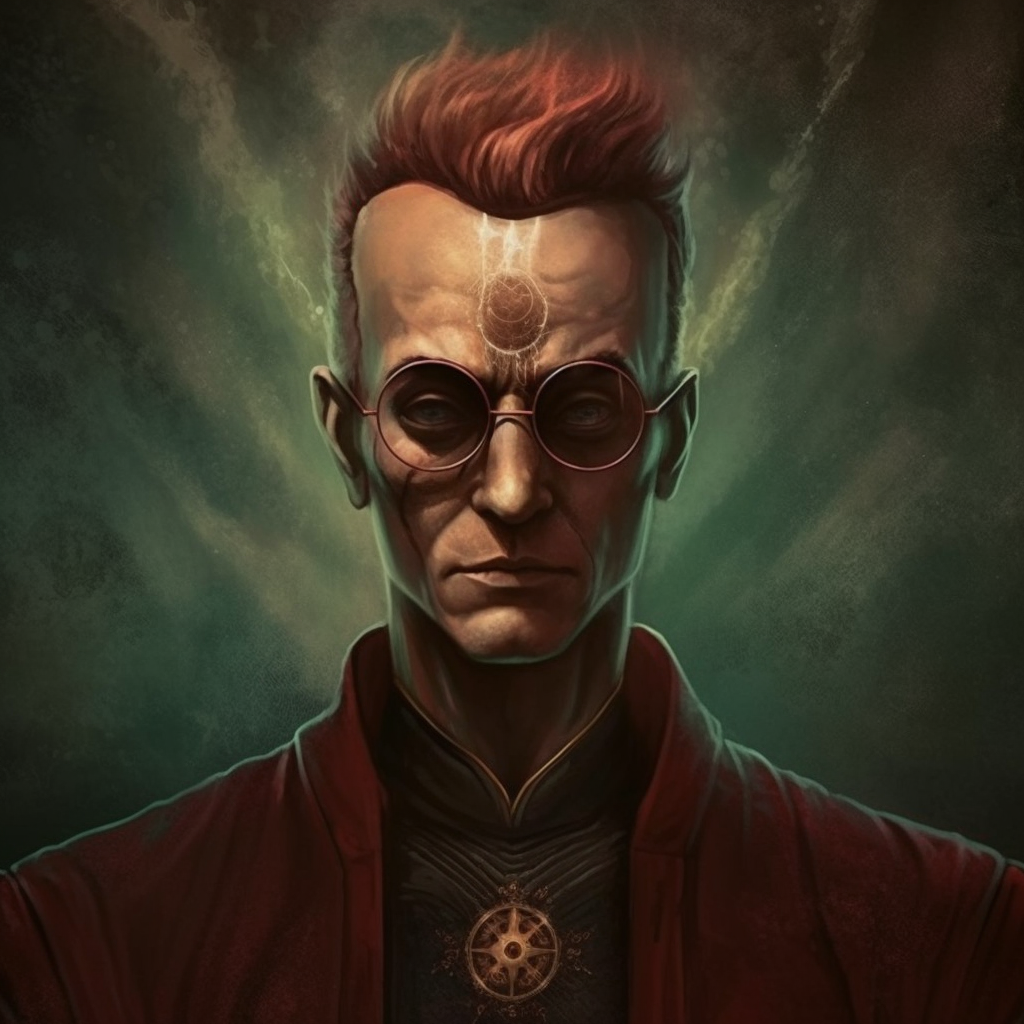Art by smbc-comics
Consciousness is often said to disappear in deep, dreamless sleep. We argue that this assumption is oversimplified. Unless dreamless sleep is defined as unconscious from the outset there are good empirical and theoretical reasons for saying that a range of different types of sleep experience, some of which are distinct from dreaming, can occur in all stages of sleep.
Pubmed Articles
Does Consciousness Disappear in Dreamless Sleep?
Sciencealert Article We Were Wrong About Consciousness Disappearing in Dreamless Sleep, Say Scientists
Sleep is NOTHING like death. You’re still experiencing lots of stuff, you still very much have a sense of self, you’re still thinking things, your brain is still processing lots of information.
General anesthesia - now THAT is a real close period to what being dead is.
I’ve had general anesthesia, it was just like falling into a deep, dreamless sleep.
If death is like that, then there’s absolutely nothing to be afraid of.
I’ve also been dead for 13.8 billion years before I was born, and I didn’t mind it then.
But that has already happened, of course you don’t fear something that has already occurred. People only fear what is yet to occur
I do mind now. I’m quite bummed out about missing all the fun of the 20th century. And never getting to breathe truly clean air. Or having the athlete body of a gatherer. Messing around in trees with feet that can actually grip something.
It’s not sleeping I’m worried about, it’s not waking up.
I’ve had general anesthesia, it was just like falling into a deep, dreamless sleep.
What if anesthesia actually just blocks your memories and physical reactions, but you actually experience everything that happens to you in absolute terror?
What if anesthesia actually just blocks your memories and physical reactions, but you actually experience everything that happens to you in absolute terror?
Latest studies with FMRIs and other tools have found that general anesthesia decouples the sections of the brain from each other. All the various parts of the brain stop communicating. It’s an entities different state than sleep based on the brain activity.
Normally when we have various stimuli or are asleep, neural activity “flows” around from one section to the other. When under general anesthesia those flows are isolated and don’t connect to other sections of the brain.
This has actually given us a huge clue as to where consciousness comes from and what makes it a thing.
It also helps explain why going under is just lights out and no drama or anything. It’s like an off switch for the “person”.
Thats exactly what some do, depends on the anesthetic, but it doesn’t matter because if a memory never forms it may as well not have happened.
if a memory never forms it may as well not have happened
That is an interesting philosophical question.
If suffering is not remembered, was there even suffering? And if there was, does it matter? I can think of a few counterexamples of that, for example: a killer who tortures his victim before killing them.
Uhh, yes and yes? What’s stopping a rapist from anesthesizing their victims before the act and using the fact that they did as an excuse to get off charges under your logic?
Physical abuse tends to leave some physical consequences. You’d have to come up with an example where there would be neither physical not psychological consequences… but even getting anesthesized against one’s will is already a consequence.
No it doesn’t, not always. Actually it’s routine for medical students to be brought in to give anesthesitized women pelvic exams without their knowledge and consent, and no one was the wiser until universities that did this announced it… https://www.nytimes.com/2020/02/17/health/pelvic-medical-exam-unconscious.html
That is textbook rape right there, and it doesn’t often have physical consequences. Most women didn’t even know but doctors fucking did it anyway.
How you people have any faith in any aspect of society is beyond me.
EDIT: And now I’m being downvoted over it. Imagine being downvoted for pointing out rape occurs during surgical procedures, a well-established fact. Think about the implications of that
Presumably in your scenario the victim remembers the torture though.
In the case of general anaesthetic the memory is effectively considered to be deleted in real time. On its way through the brain it ceases to exist so it never reaches the conscious mind.
There was a case of a guy, where they botched the anesthesia, and he was just paralyzed but conscious the whole time during some invasive surgery. They realized their mistake, and tried to fix it by giving him some amnesic so he wouldn’t retain the memories.
After getting discharged, he wouldn’t remember anything… but kept having nightmares, and a few weeks later took his own life.
So it seems like memories don’t need to be fully formed to mess one up.
That sounds like the mechanism might be different though, but yeah some percentage of people wake up during surgery while the paralytic is still in effect, they closely monitor the heart rate for sudden spikes because of this I believe. It sounds horrifying to me, but then I remember that there was a time when anesthetics didn’t exist.
I had to be put under a few years ago to extract wisdom teeth and I wouldn’t say I was 100% gone. I remember seeing the light through my eyelids, hearing muffled unintelligible voices, and feeling mild tension as they worked in my mouth, jostling my head around. No pain, but notable light sensations. It also felt like it was over in a minute for an hour and a half procedure. Was definitely a wild experience, but certainly no terror remembered, thankfully.
I’m genuinely surprised that the idea that something bad might happen to you when you’re dead or that it could be painful etc is anywhere near as prevalent as it is. To me, that makes absolutely no sense. Of course dying might be painful… But death? Once you brain no longer works? Feels obvious to me that you won’t feel, well, anything. The thing that frightens me about death wouldn’t be the experience of being dead, but rather not being able to do any more things and not existing anymore.
This reasoning goes all the way back to Epicurus. With regard to your latter points, Epicurus thought they were also solved by being dead. For someone to miss out on something, they have to exist in the first place. No person, no missing out. And for not existing to be bad, a person must be around to be upset about it.
What’s hard for me to accept is the idea of never waking up. It seems like it has to end sometime.
See for me I’m not sure why that’s hard to accept. I think I first heard it from Alan Watts, that there were billions of years of space before I was conscious, so why am I afraid of billions of years of nothing after I’m gone?
Not having something in the first place and losing something you have are two different things. It’s like saying to someone who just lost their partner “don’t feel bad, for the first n years of your life you didn’t have a partner and you were fine”
Additionally, it’s not billions of years of nothing. It’s an eternity of nothing. Billions of years may as well be the blink of an eye relative to eternity.
God, I’m getting anxious just talking about it.
I didn’t say i was afraid of it, just that it seemed unlikely. The billions before you were conscious ended somehow, right?
I think that most people aren’t afraid of death itself. It’s more the suffering to get there.
The most scary stuff is just not doing or experiencing anything after death, at least for me. (Probably the biggest fomo on earth)
Life is a series of missed opportunities. When you choose to do something, you miss out on a multitude of other options. That is fine.
But I get the FOMO, it took me a few years of active mindfulness to reign it in.
But isn’t there a fear anyway? Because its forever. Also not seeing loved ones ever again. Not enjoying the nice things ever again.
Add constant pain, and that’s what I call life.
deleted by creator
It’s not rational. Evolution has hardwired us and every other organism that has the necessary neural architecture to fear death and seek to avoid it. A species that didn’t have an instinctive and heritable aversion to death would not last very long.
deleted by creator
Describe your “aversion” to death any way you want to, if in the end it results in something that very much looks like fear, I think you’re making a distinction without a difference.
deleted by creator
For me when I had anesthesia I quickly closed my eyes with the surgeon talking, when I opened my eyes the surgeon was still talking so I was wondering when the surgery would start.
Of course when I opened my eyes it was 5 hours later and after the surgery but it took me a while to realized that.
It’s pretty cool that you could just continue your thought after basically pausing your brain for five hours. Kind of like hibernation for a pc I guess.
Except the agonizing pain which precedes death
Depends on the death.
If it’s death from too much anaesthesia (or, apparently, freezing), there is none.
Is there a way to actually know that?
Is there a way to actually know anything?
I’m sure you could measure brain activity during death to know for sure (but idk under what conditions you’d be able to do that though). It doesn’t really make any sense to me that dying, unless due to some painful external cause, would be painful though. Especially under anesthesia or similar.
When I’m asleep I’m not experiencing shit. Close eyes, moment of black, awake again the next day.
This is not the normal human experience. Check if you’re a robot?
My diagnostics said “all systems normal” so that can’t be it
You just don’t remember your dreams.
That’s probably true. I have definitely had some dreams. But maybe only fifty over thirty-seven years.
Coma?
Well except Ketamine and some other substances that are used in anesthesia.
That’s not general anesthesia, that’s like twilight anesthesia or some other term like that.
Your brain is still very much active. It’s more like running a computer with the display turned off.
Do you really have dreamless sleep or do you simply not remember the dream?
The majority of sleep is dreamless, I believe it’s just during REM that you dream, which I believe is usually 15-20% of normal sleep.
Technically, if you remember a dream it’s because you woke up during a REM cycle. If your sleep cycle completes fully, then you won’t remember your dream and will feel more rested.
I think this is false but I don’t have information to refute it other than my own experience. I used to write a dream diary. When I did, I remembered my dreams almost every time I woke up. Not just half the time or 80% but more like 96% of the time. And it was very detailed with multiple dreams tied to each other.
I remember I’ve had dreams but I only have a very vague sense of what they are about.
Also kept a dream journal.
The trick is not to focus on the story (what the dream is about or means) and to recall the emotional energy in the dream.
Learning to meditate and tune into my emotions was both aided by dream journaling, and an aid to dream journaling.
Plus the emotional content probably has more meaning than whatever story we tell ourselves.
Agreed. In my experience, dreams can be interpreted much like art can be interpreted. How you emotionally respond to the images and scenarios tells you a lot about what your mind is attempting to deal with while you are physically safe. I believe that dreams are a form of poetry that your mind is engaged with in order to integrate life experiences in a safe manner.
I kept a dream journal for a couple of years.
Subjectively there was no way for me to know if it was memory or just my tired brain making a story out of the left over bits of sleep.
It did fuel a lot of creative writing though (both in and out of the journal). And helped me be more in touch with my emotions.
I think this is false
It’s not false. I remember my dreams every morning, and often remember them for a long time. I also have sleep issues and never get restful sleep.
There’s naturally far more nuanced to the neuroscience, but it’s largely true.
Death is ‘Long Death’, Sleep is ‘Short Death’, and Naps are ‘Power Death’.
I mean, I lucid dream every night. So my consciousness is rarely off.
I’ve been practicing for almost 20 years to be able to switch it on and off so its kinda nice that I get to be a god 6 to 8 hours a day
Why don’t you join !LucidDreaming@kbin.social, you could be helpful to build that community
Do you find it an enjoyable or useful experience?
I love it. Things can go from psychedelic to me flying in the air, changing the landscape like I’m some sort of God.
I can even make food and banquets appear, and I can eat whatever I want at full flavor
I can even make any sexual fantasy I want come true instantly. I don’t do this often, though. As I think it would destroy me in the waking world.
For the most part, it was worth the years of work it took to learn the meditation needed for all of this.
Amazing. Thanks for the insight. Got any links people would find useful if they wanted to follow in your footsteps?
I can’t reccomend books outside of the basics of meditation. Most of it requires some work to be put in with body mindfulness.
Next time you are about to fall asleep, try to program your brain to find out something that’s meaningful to you. Just keep telling yourself that you are going to find that thing. And when you do, you will KNOW it’s a dream. Keep telling yourself to test reality in your dreams.
Its ALL about breaking the waking and the non waking barriers
It will take time to master those powers and the night that you do you will wake up like you just took LSD. Even still, keep that dream object and reality testing in mind. The more you do the more you will find yourself testing if it’s a dream in the dream. That will set it off.
You can even test if you are in a dream IRL a few time a day to speed things up. It sounds silly to do, but it will train your mind to test reality in dreams.
Interesting. Thank you!
deleted by creator
Are you one of those people who needs an authority figure to tell you what you are experiencing?
I have a doctorate in philosophy, if that counts.
I’m sorry that you’re so closed-minded to things like this.
Try it, and dont give up
Can you send it to me too, please? I tried a while ago, but gave up.
Yo I’m giving up too, I know it’s hard but, as guy said to me:
How can we expect to get lucid at night when we’re going through our waking lives in auto-pilot? If we practice being here and now and being aware of the nature of our reality, that mindset will sooner or later be a part of our lives, both waking and dreaming.
Awareness in waking life is necessary for Lucid Dreams
A human being is a process of computation. Ending the computation is death. Pausing the computation is, well, simply pausing the computation. It has no profound significance.
(This is also my answer to the “teleporter problem.” As long as the computation continues, a change in the substrate on which it takes place also has no profound significance.)
a change in the substrate on which it takes place also has no profound significance.
It does to the person being “deleted”.
Here is an alternative Piped link(s): https://piped.video/-mu780uB7mI?si=mKSO3SiGfkqIXnWq
Piped is a privacy-respecting open-source alternative frontend to YouTube.
I’m open-source, check me out at GitHub.
Good to know. Sometimes i use Invidious but the more alternative, the better.
Nice one👍 I love the channel.
What is the door looking thing with legs supposed to represent?
a thumb with legs, arms, and a yellow eye
To die
To sleep
To sleep, perchance to dream…
Me: Sleep, how I loathe those little slices of death.
Also me: watches 2 hours of unnarrated sleeper train travel videos on YouTube
zZzZzZzZz
When people ask me what happens when you die, I say:
“Remember what it was like before you were born? Well it’s a lot like that.”
what a suspicious comic
There’s still brain activity in sleep.
Brain activity isnt nessecarily consciousness.
Right? I’ve met so many of those people.
And blocked




















